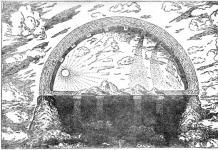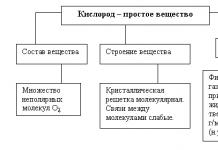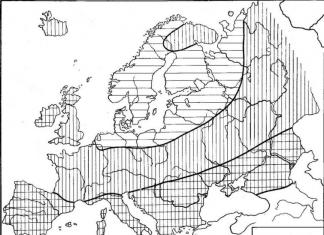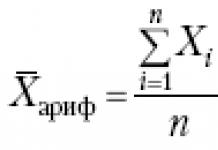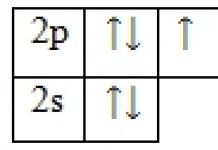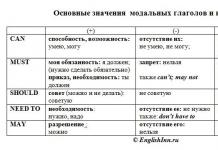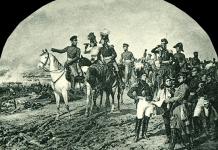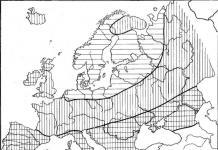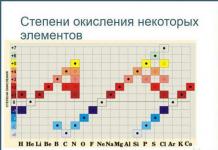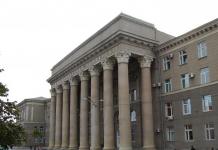Delimit empirical And theoretical research, although this distinction is conditional. Typically, most studies have theoretical-empirical nature.
According to the nature of the research, they are divided into the following types:
basic research, which is aimed at understanding reality without taking into account the practical effect of applying knowledge;
applied research which is carried out in order to obtain knowledge that should be used to solve a specific practical problem;
monodisciplinary research, which are carried out within the framework of a separate science (in this case, psychology);
interdisciplinary research, which are carried out at the intersection of several sciences and require the participation of specialists from different fields;
comprehensive research, which are carried out using a system of methods and techniques through which scientists strive to cover the maximum (or optimal) possible number of significant parameters of the reality being studied;
single-factor (analytical) studies, which are aimed at identifying one, most significant, in the researcher’s opinion, aspect of reality.
Based on the purpose of the research, it can be divided into several types:
exploratory research: represent an attempt to solve a problem that no one has posed or solved in a similar way;
critical studies: carried out with the aim of refuting an existing theory, model, hypothesis, etc. or to test which of two alternative hypotheses more accurately predicts reality;
clarifying studies: are carried out with the aim of establishing the boundaries within which the theory predicts facts and empirical patterns;
replication studies: are carried out with the aim of accurately repeating the experiment of predecessors to determine the reliability, reliability and objectivity of the results obtained, and verifying the results obtained by predecessors. Replicative research is the basis of all science.
Therefore, the operations performed during the study should be reproduced by any qualified researcher.
Topic 4. Validity of scientific research Validity
Validity is a fundamental concept in experimental psychology. The degree of validity determines how well the results of the experiment correspond to the task at hand.
The scientific result must be invariant with respect to space, time, types of objects and subjects of research, that is, objective. This means that a scientific result should not depend on where it was obtained, on the time in which it was obtained, on the identity of the study. These requirements relate to an ideal study and its ideal result.
In reality, real research cannot fully correspond to the ideal one. Therefore, we should distinguish between phenomena and processes occurring in reality and their analogues that we observe or reproduce during research.
In this regard, it is necessary to check the compliance of a real study with an ideal study, that is, to check the validity of a real study.
The correspondence between an ideal experiment and a real one is called internal validity . Internal validity characterizes the degree of reliability of the acquired knowledge that a real experiment provides compared to an ideal one.
Internal validity is a sine qua non of any experiment. D. Campbell identified eight main factors that violate the internal validity of an experiment. The first group of factors can be called sampling factors:
selection– non-equivalence of groups in composition, which causes a systematic error in the results;
statistical regression – special case selection errors, when groups were selected on the basis of “extreme” indicators (otherwise - correlation due to group heterogeneity);
experimental screening– uneven dropout of subjects from the compared groups, leading to non-equivalence of the groups in composition;
natural development– a change in the subjects, which is a consequence of the passage of time, without connection with specific events: a change in state (hunger, fatigue, illness, etc.), in the properties of the individual (age-related changes, accumulation of experience, etc.).
The second group is secondary variables, the influence of which leads to the following effects:
"story" effect– specific events that occur in the period between the initial and final testing in addition to the experimental influence;
testing effect– the influence of preliminary testing on the result of the final one;
instrumental error– is determined by the reliability of the method for recording the subject’s behavior, i.e.
reliability of the test; it is reliability that influences validity, according to D. Campbell, and not vice versa; interaction of factors:
selection; natural development, history (different histories of experimental groups), etc.
Later, D. Campbell described a number of other sources of violation of internal validity. The most significant ones relate to the experimental procedure, namely: compensatory comparison of the effects of various influences, imitation of an influence when it does not actually occur, etc. Any knowledge is good because it can be applied in practice, and this is determined correspondence of real research to the objective reality being studied . This correspondence is called external validity
research. Thus, external validity determines the possibility of extending the results obtained in the study to objective reality. D. Campbell calls:
testing effect the main reasons for the violation of external validity
– decrease or increase in the susceptibility of subjects to experimental influence under the influence of testing. For example, preliminary control of students' knowledge can increase their interest in new educational material.
Since the population is not pretested, the results for it may not be representative; research conditions
. They cause the subject's reaction to the experiment. Consequently, its data cannot be transferred to individuals who did not take part in the experiment; these individuals are the entire general population, except for the experimental sample;
interaction of selection factors and experimental content
. Their consequences are artifacts (in experiments with volunteers or subjects participating under duress); interference of experimental influences . , The subjects have memory and learning ability. If an experiment consists of several series, then the first influences do not pass without a trace and affect the appearance of effects from subsequent influences. , since the “ideal research” plan is built on the basis of a theoretical idealization of reality - research hypotheses.
In experimental psychology, along with the above types of validity, the following types are mainly used: operational validity, construct validity and ecological validity.
Operational validity determines the degree of compliance of the methodology and experimental plan with the hypothesis being tested.
Operational validity is a special case of external validity. It determines the degree of compliance of the experimental methodology used (experimental statements) with the theoretical principles that form the basis for the organization and conduct of the experiment.
D. Campbell introduces the concept construct validity . Construct validity refers to attempts to label any aspect of an experiment. The dangers of violating construct validity are the incorrect designation of cause and effect using abstract terms and terms taken from ordinary language or formal theory.
“Construct validity expresses the adequacy of the method of interpreting experimental data of a theory. According to D. Campbell, construct validity characterizes the correctness of the designation (interpretation) of the cause and experimental effect using abstract terms from ordinary language or formal theory. Internal validity is determined by the reliability of the interpretation of the experimental effect as a relationship between the studied cause and effect, and constructive validity is determined by the correct use of the terms of a particular theory when interpreting experimental data.”
Adequate handling of terminology relates to the methodological part of the organization of the experiment, therefore, apparently, constructive validity can be considered part of the operational one.
Ecological validity determines how much the experimental conditions imitate the reality under study. In field experiments, ecological validity reaches its maximum naturally; accordingly, in laboratory experiments it is quite difficult to maintain a high degree of ecological validity, and it is not always necessary.
The form of existence and development of science is scientific research. Activities in the field of science - scientific research - a special form of the cognition process, such a systematic and purposeful study of objects, which uses the means and methods of science and which ends with the formation of knowledge about the objects being studied.
Scientific research is classified on various grounds.
Based on the source of funding, scientific research is distinguished between budgetary, contractual and unfinanced. Budgetary studies are financed from the budget of the Russian Federation or the budgets of the constituent entities of the Russian Federation. Contract research is financed by customer organizations under business contracts. Unfunded research can be carried out on the initiative of the scientist, under the individual plan of the teacher. In regulatory legal acts on science, scientific research is divided according to its intended purpose into fundamental, applied, exploratory and development.
Fundamental scientific research is an experimental or theoretical activity aimed at obtaining new knowledge about the basic laws of the structure, functioning and development of man, society, and the natural environment.
Applied scientific research is research aimed primarily at applying new knowledge to achieve practical goals and solve specific problems. In other words, they are aimed at solving the problems of using scientific knowledge obtained as a result of fundamental research in the practical activities of people.
Scientific research is often a combination of the two
types, and therefore they should be called theoretical-applied.
Exploratory research is called scientific research aimed at determining the prospects of working on a topic and finding ways to solve scientific problems.
Development is research that is aimed at implementing the results of specific fundamental and applied research into practice.
By duration, scientific research can be divided into long-term, short-term and express research.
Depending on the forms and methods of research, some authors distinguish experimental, methodological, descriptive, experimental-analytical, historical-biographical research and mixed-type research.
In the theory of knowledge, there are two levels of research: theoretical and empirical.
The theoretical level of research is characterized by the predominance of logical methods of cognition. At this level, the obtained facts are examined and processed using logical concepts, inferences, laws and other forms of thinking.
Here the objects under study are mentally analyzed, generalized, their essence, internal connections, and laws of development are comprehended. At this level, cognition through the senses (empirics) may be present, but it is subordinate.
The structural components of theoretical knowledge are the problem,
hypothesis and theory.
A problem is a complex theoretical or practical task, the solutions to which are unknown or not fully known. There are undeveloped problems (pre-problems) and developed ones.
Undeveloped problems are characterized by the following features:
1) they arose on the basis of a certain theory, concept;
2) these are difficult, non-standard tasks;
3) their solution is aimed at eliminating the contradiction that has arisen in knowledge;
4) ways to solve the problem are not known.
Developed problems have more or less specific instructions on how to solve them.
Hypothesis - there is an assumption about the cause that requires verification and proof,
which causes a certain consequence, about the structure of the objects under study and the nature
internal and external connections of structural elements.
A scientific hypothesis must meet the following requirements:
1) relevance, i.e. relevance to the facts on which it is based;
2) verifiability empirically, comparability with observational or experimental data (with the exception of untestable hypotheses);
3) compatibility with existing scientific knowledge;
4) possessing explanatory power, i.e. a certain number of facts and consequences confirming it should be derived from the hypothesis. The hypothesis from which the largest number of facts is derived will have greater explanatory power;
5) simplicity, i.e. it should not contain any arbitrary assumptions or subjectivist layers.
There are descriptive, explanatory and predictive hypotheses.
A descriptive hypothesis is an assumption about the essential properties of objects, the nature of the connections between the individual elements of the object being studied.
An explanatory hypothesis is an assumption about cause-and-effect relationships.
A predictive hypothesis is an assumption about the trends and patterns of development of the object of study.
Theory is logically organized knowledge, a conceptual system of knowledge that adequately and holistically reflects a certain area of reality. It has the following properties:
1. Theory is one of the forms of rational mental activity.
2. Theory is a holistic system of reliable knowledge.
3. It not only describes a set of facts, but also explains them, that is, it reveals the origin and development of phenomena and processes, their internal and external connections, causal and other dependencies, etc.
Theories are classified according to the subject of research. On this basis, they distinguish between social, mathematical, physical, chemical, psychological, ethical and other
theories. There are other classifications of theories.
In modern scientific methodology, the following structural elements of the theory are distinguished:
1) initial foundations (concepts, laws, axioms, principles, etc.);
2) an idealized object, i.e. a theoretical model of some part of reality, essential properties and connections of the phenomena and objects being studied;
3) the logic of the theory - a set of certain rules and methods of proof;
4) philosophical attitudes and social values;
5) a set of laws and regulations derived as consequences from this theory. The structure of a theory is formed by concepts, judgments, laws, scientific provisions, teachings, ideas and other elements.
A concept is a thought that reflects the essential and necessary characteristics of a certain set of objects or phenomena.
A scientific term is a word or combination of words denoting a concept used in science.
A set of concepts (terms) that are used in a particular science,
forms its conceptual apparatus.
A judgment is a thought that affirms or denies something.
A principle is a guiding idea, the main starting point of a theory. The principles are theoretical and methodological.
An axiom is a position that is initial, unprovable, and from which other provisions are derived according to established rules.
Law is an objective, essential, internal, necessary and stable connection between phenomena and processes. Laws can be classified on various grounds. Thus, according to the main spheres of reality, we can distinguish the laws of nature, society, thinking and knowledge; according to the scope of action - general, general and particular.
A pattern is: 1) the totality of the action of many laws; 2) a system of essential, necessary general connections, each of which constitutes a separate law.
A proposition is a scientific statement, a formulated thought.
Doctrine is a set of theoretical positions about any area of reality.
An idea is: 1) a new intuitive explanation of an event or phenomenon; 2) the defining core position in the theory.
A concept is a system of theoretical views united by a scientific idea (scientific ideas).
The empirical level of research is characterized by the predominance of sensory cognition (study outside world through the senses). At this level, forms of theoretical knowledge are present, but have a subordinate meaning.
The interaction between the empirical and theoretical levels of research is that:
1) the totality of facts forms the practical basis of the theory or hypothesis;
2) facts can confirm or refute a theory;
3) a scientific fact is always permeated with theory, since it cannot be formulated without a system of concepts, interpreted without theoretical ideas;
4) empirical study in modern science it is predetermined and guided by theory.
The structure of the empirical level of research consists of facts, empirical
generalizations and laws (dependencies).
The concept “fact” is used in several meanings:
1) an objective event, a result related to objective reality (a fact of reality) or to the sphere of consciousness and cognition (a fact of consciousness);
2) knowledge about any event, phenomenon, the reliability of which has been proven (truth);
3) a sentence that captures the knowledge obtained through observations and experiments.
Empirical generalization is a system of certain scientific facts. Empirical
laws reflect regularity in phenomena, stability in relationships between observables
phenomena. These laws are not theoretical knowledge. Unlike theoretical
laws that reveal the essential connections of reality, empirical laws
reflect a more superficial level of dependency.
The form of existence and development of science is scientific research. In Art. 2 of the Federal Law of the Russian Federation of August 23, 1996 “On Science and State Scientific and Technical Policy” gives the following definition: scientific (research) activities - is an activity aimed at obtaining and applying new knowledge.
In general, scientific research usually refers to activities aimed at a comprehensive study of an object, process or phenomenon, their structure and connections, as well as obtaining and implementing results useful for humans into practice. Any scientific research must have its own subject and object, which define the area of research.
Object scientific research is a material or ideal system, and as subject may be the structure of this system, patterns of interaction and development of its elements, etc.
Scientific research is purposeful, so each researcher must clearly formulate the purpose of his research. The purpose of scientific research is the projected result of research work. This can be a comprehensive study of any process or phenomenon, connections and relationships using the principles and methods of cognition developed in science, as well as obtaining and implementing results useful for humans into practice.
Scientific research is classified on various grounds.
By source of funding differentiate:
Budgetary scientific research,
Economic agreements
And unfunded.
Budgetary studies are financed from the budget of the Russian Federation or the budgets of the constituent entities of the Russian Federation. Economic contract research is financed by customer organizations under economic contracts. Unfunded research may be carried out on the initiative of a scientist, individual plan teacher.
In regulatory acts on science, scientific research is divided according to its intended purpose into:
Fundamental,
Applied.
IN Federal law dated August 23, 1996 “On science and state scientific and technical policy” the concepts of fundamental and applied scientific research are given.
Basic scientific research- this is an experimental or theoretical activity aimed at obtaining new knowledge about the basic laws of the structure, functioning and development of man, society, and the natural environment. For example, research on the patterns of formation and functioning can be classified as fundamental. rule of law or about global, regional and Russian economic trends.
Applied scientific research- this is research aimed primarily at applying new knowledge to achieve practical goals and solve specific problems. In other words, they are aimed at solving the problems of using scientific knowledge obtained as a result of fundamental research in the practical activities of people. For example, works on methods for evaluating investment projects depending on their types or work related to marketing research can be considered as applied.
Search engines are called scientific research aimed at determining the prospects of working on a topic and finding ways to solve scientific problems.
Development refers to research that is aimed at implementing the results of specific fundamental and applied research into practice.
According to the timing of completion, scientific research can be divided into:
Long-term,
Short term
And express research.
Depending on the forms and methods of research, some authors distinguish experimental, methodological, descriptive, experimental-analytical, historical-biographical research and mixed-type research.
In the theory of knowledge there are two levels of research : theoretical and empirical.
Theoretical level research is characterized by the predominance of logical methods of cognition. At this level, the obtained facts are examined and processed using logical concepts, inferences, laws and other forms of thinking.
Here the objects under study are mentally analyzed, generalized, their essence, internal connections, and laws of development are comprehended. At this level, cognition through the senses (empirics) may be present, but it is subordinate.
Structural components theoretical knowledge are problem, hypothesis and theory.
Problem- this is a complex theoretical or practical problem, the methods for solving which are unknown or not fully known. There are undeveloped problems (pre-problems) and developed ones.
Undeveloped problems are characterized by the following features:
1) they arose on the basis of a certain theory, concept;
2) these are difficult, non-standard tasks;
3) their solution is aimed at eliminating the contradiction that has arisen in knowledge;
4) ways to solve the problem are not known. Developed problems have more or less specific instructions on how to solve them.
Hypothesis there is an assumption that requires verification and proof about the cause that causes a certain effect, about the structure of the objects under study and the nature of the internal and external connections of the structural elements.
A scientific hypothesis must meet the following requirements:
1) relevance, i.e. relevance to the facts on which it relies;
2) testability by experience, comparability with observational or experimental data (with the exception of untestable hypotheses);
3) compatibility with existing scientific knowledge;
4) possessing explanatory power, i.e. from the hypothesis a certain number of facts and consequences confirming it must be deduced.
The hypothesis from which the largest number of facts is derived will have greater explanatory power;
5) simplicity, i.e. it should not contain any arbitrary assumptions or subjectivist layers.
There are descriptive, explanatory and predictive hypotheses.
A descriptive hypothesis is an assumption about the essential properties of objects, the nature of the connections between the individual elements of the object being studied.
An explanatory hypothesis is an assumption about cause-and-effect relationships.
A predictive hypothesis is an assumption about the trends and patterns of development of the object of study.
Theory- this is logically organized knowledge, a conceptual system of knowledge that adequately and holistically reflects a certain area of reality.
It has the following properties:
1. Theory is one of the forms of rational mental activity.
2. Theory is a holistic system of reliable knowledge.
3. It not only describes a set of facts, but also explains them, i.e. reveals the origin and development of phenomena and processes, their internal and external Relations, causal and other dependencies, etc.
Theories are classified according to the subject of research. On this basis, social, mathematical, physical, chemical, psychological, economic and other theories are distinguished. There are other classifications of theories.
In modern scientific methodology, the following structural elements of the theory are distinguished:
1) initial foundations (concepts, laws, axioms, principles, etc.);
2) an idealized object, i.e. a theoretical model of some part of reality, essential properties and connections of the phenomena and objects being studied;
3) the logic of the theory - a set of certain rules and methods of proof;
4) philosophical attitudes and social values;
5) a set of laws and regulations derived as consequences from this theory.
The structure of a theory is formed by concepts, judgments, laws, scientific provisions, teachings, ideas and other elements.
Concept is a thought that reflects the essential and necessary characteristics of a certain set of objects or phenomena.
Category- a general, fundamental concept that reflects the most essential properties and relationships of objects and phenomena. Categories can be philosophical, general scientific, or related to a particular branch of science. Examples of categories in legal sciences: law, offense, legal responsibility, state, political system, crime.
Scientific term is a word or combination of words denoting a concept used in science.
The set of concepts (terms) that are used in a certain science forms it conceptual apparatus.
Judgment is a thought in which something is affirmed or denied. Principle- this is the guiding idea, the main starting point of the theory. The principles are theoretical and methodological. At the same time, one cannot ignore methodological principles dialectical materialism: treat reality as an objective reality; differ essential features the object being studied from minor ones; consider objects and phenomena in continuous change, etc.
Axiom- this is a provision that is initial, unprovable and from which other provisions are derived according to established rules. For example, at present it is necessary to recognize as axiomatic the statements that there is no crime without an indication of it in the law, ignorance of the law does not exempt from responsibility for its violation, the accused is not obliged to prove his innocence.
Law- this is an objective, essential, internal, necessary and stable connection between phenomena and processes. Laws can be classified on various grounds. Thus, according to the main spheres of reality, we can distinguish the laws of nature, society, thinking and knowledge; according to the scope of action - general, general and particular.
Pattern- This:
1) the totality of many laws;
2) a system of essential, necessary general connections, each of which constitutes a separate law. Thus, there are certain patterns in the movement of crime on a global scale:
1) its absolute and relative growth;
2) lagging social control over it.
Position- a scientific statement, a formulated thought. An example of a scientific position is the statement that a rule of law consists of three elements: hypothesis, disposition and sanctions.
Idea- This:
1) a new intuitive explanation of an event or phenomenon;
2) the defining core position in the theory.
Concept is a system of theoretical views united by a scientific idea (scientific ideas). Theoretical concepts determine the existence and content of many legal norms and institutions.
The empirical level of research is characterized by the predominance of sensory cognition (the study of the external world through the senses). At this level, forms of theoretical knowledge are present, but have a subordinate meaning.
The interaction between the empirical and theoretical levels of research is that:
1) the totality of facts forms the practical basis of the theory or hypothesis;
2) facts can confirm or refute a theory;
3) a scientific fact is always permeated with theory, since it cannot be formulated without a system of concepts, interpreted without theoretical ideas;
4) empirical research in modern science predetermined, guided by theory. The structure of the empirical level of research consists of facts, empirical generalizations and laws (dependencies).
The concept " fact"is used in several meanings:
1) an objective event, a result related to objective reality (a fact of reality) or to the sphere of consciousness and cognition (a fact of consciousness);
2) knowledge about any event, phenomenon, the reliability of which has been proven (truth);
3) a sentence that captures the knowledge obtained through observations and experiments.
Empirical generalization is a system of certain scientific facts. For example, as a result of studying criminal cases of a certain category and generalizing investigative and judicial practice, it is possible to identify typical mistakes allowed by the courts when qualifying crimes and imposing criminal penalties on the perpetrators.
Empirical laws reflect regularity in phenomena, stability in the relationships between observed phenomena. These laws are not theoretical knowledge. Unlike theoretical laws, which reveal the essential connections of reality, empirical laws reflect a more superficial level of dependencies.
Scientific research is a form of existence and development of science. It is an activity aimed at a comprehensive study of an object, process or phenomenon, their structure and connections. According to the intended purpose, scientific research is divided into fundamental, applied, search and development .
Fundamental research aimed at the discovery and study of new phenomena and laws of nature, man and society. They necessarily include a deeply developed theoretical part and are often called theoretical studies. For example, the study of photosynthesis, the study of forests, types of forests, etc. Basic Research can be targeted (for example, genetics, ecology) and are carried out by several scientific institutions or the school of a famous scientist.
Fundamental research in the Russian Federation is developed mainly in institutes of the Russian Academy of Sciences (RAS) and universities.
The RAS was founded on February 8, 1724 according to the “establishments” of Peter I. Every year in the Russian Federation on February 8 a professional holiday is celebrated - Science Day. At first, the presidents of the RAS were German scientists: L. Blumentrost - from 1725 to 1733, I. Korff (1734-1740). The first domestic president was G.K. Razumovsky, who was appointed to this position at the age of 18, taking into account “special abilities and art acquired in the sciences.” He served in this post for more than half a century (1746-1798). Later, the Academy was headed by many outstanding scientists, for example: A. Karpinsky, V. Komarov, A. Nesmeyanov, A. Alexandrov, M. Keldysh, etc. Now there are about 470 academicians working in the RAS system (and a total of 3.5 thousand since its founding . people), 700 corresponding members, 9.3 thousand doctors of science and 26.5 thousand candidates of science.
The world's first Academy was founded by the philosopher Plato in 387 BC. This is how the inhabitants of Athens called the meetings of his students, which were held outside the city in the sacred grove where he was buried Athenian hero named Academician. Later, in medieval Europe, at the instigation of Plato’s followers (Neoplatonists), associations of scientists called “academies” began to arise. The scientists themselves, and soon also people of art of various directions, began to be called academicians. In Europe, the first academy of sciences is considered to be the one in Paris (1666), and before it the Royal Society of London was created (1660). The words “science” and “scientist” came into use in the 18th-20th centuries, and before that, natural scientists called their work “natural philosophy.”
In the Russian Federation, in addition to the Russian Academy of Sciences, there are branch academies: agricultural sciences (RASKhN), medical sciences (RAMS), education (RAO), architecture and construction sciences (RAAiSN) and arts (RAA). They, like the Russian Academy of Sciences, have state status and are financed from the state budget. The RAS has three regional scientific centers (Ural, Siberian and Far Eastern) and 9 departments (in areas and areas of science). The Ural branch (Ekaterinburg) has 6 scientific centers: Arkhangelsk, Komi, Orenburg, Perm, Udmurt and Chelyabinsk. Branch academies of sciences also have research centers.
Over the past two decades, more than 60 public (non-state) academies of sciences have been created in the Russian Federation.
Forest research is coordinated by the Russian Academy of Agricultural Sciences and the Department of Biological Sciences of the Russian Academy of Sciences. The study of forests in the Russian Federation is carried out by: Forest Institute named after. V.N. Sukacheva (Krasnoyarsk), All-Russian Research Institute of Forestry and Forestry Mechanization (VNIILM) (Pushkino, Moscow Region), St. Petersburg Research Institute of Forestry (SPbNIILH).
In the Urals, forest research is carried out by: UGFLTU, Institute of Plant and Animal Ecology of the Russian Academy of Sciences (dendrochronology laboratory), Botanical Garden of the Russian Academy of Sciences (forestry and botanical departments), Ural State University. A.M. Gorky, as well as forest experimental stations.
Applied scientific research are aimed primarily at achieving practical goals and solving specific current problems. They try to quickly implement the most effective developments into production. It is sometimes said that fundamental research works for the future, and applied research works for the present.
An example of applied scientific developments can be research on final and intermediate fellings, growing planting material, etc. Compared to theoretical (fundamental) applied research in most cases is short-term (in forestry it is carried out in 1-2, sometimes 3 years) . research Search engines
some consider it a type of applied. They are usually associated with searching for promising directions in a large scientific topic and finding faster solutions to some important problems. Developments
They present research on implementation into practice, most often of an applied nature, i.e. This is a kind of refinement of a future industrial design. An example of development could be a device or modification of a mechanism when it is reinstalled from one unit to another.
Based on the source of funding, scientific research is divided into budgetary, economic contractual and initiative (unfunded). Economic contractual research is financed by organizations that act as customers of economic contracts with scientists or scientific organizations. Unfunded research is carried out on the own initiative of its authors. In forestry, scientific research has become increasingly used in recent decades. and system analysis, considering objects of study in the system (biogeocenosis, geographic information systems). The concepts and principles of the systems approach are broader than the individual identified dependencies. Complex objects are considered in several interrelated directions, which are then reduced to a common final goal.
Transcript
1 THE CONCEPT OF SCIENCE AND SCIENTIFIC ACTIVITY. TYPES OF SCIENTIFIC RESEARCH
2 Science, scientific and technical activity, knowledge Science is a historically established form of human activity aimed at knowing and transforming objective reality. Modern science is an extremely ramified collection of individual scientific branches. The subject of science is not only the world outside of man, various shapes and types of movement of matter, but also their reflection in consciousness, i.e. the man himself.
3 The concept of “science” has several basic meanings: They understand the sphere of human activity aimed at developing and systematizing new knowledge about nature, society, thinking and knowledge of the surrounding world; acts as a result of this activity - a system of acquired scientific knowledge; is a system of relationships between scientific organizations and members of the scientific community.
4 Objectives of science: collecting, describing, analyzing, summarizing and explaining facts; discovery of the laws of motion of nature, society, thinking and cognition; systematization of acquired knowledge; explanation of the essence of phenomena and processes; forecasting events, phenomena and processes; establishing directions and forms of practical use of acquired knowledge.
5 I. P. Kokhanovsky, according to one of the bases for dividing science, distinguishes: a) science, which, along with the true, includes untrue results (religious, magical ideas, certain contradictions and paradoxes, personal preferences, antipathies, errors, etc.); b) the solid core of science - a reliable, true layer of knowledge; c) history of science; d) sociology of science.
6 If science is considered from the point of view of the interaction of the subject and object of knowledge, then it includes the following elements: object (subject) - what a specific science studies, what scientific knowledge is aimed at; subject - a specific researcher, scientific worker, specialist of a scientific organization, organization; scientific activity of subjects who use certain techniques, operations, methods to comprehend objective truth and discover the laws of reality.
7 Depending on the level of knowledge, methods of empirical, theoretical and metatheoretical levels are distinguished. Methods of the empirical level include observation, description, comparison, counting, measurement, questionnaire, interview, testing, experiment, modeling, etc. Methods of the theoretical level include axiomatic, hypothetical (hypothetico-deductive), formalization, abstraction, general logical methods (analysis, synthesis, induction, deduction, analogy), etc. Methods of the metatheoretical level are dialectical, metaphysical, hermeneutic, etc. Some scientists add to this method is attributed to the level system analysis, and others include it among the general logical methods.
8 Depending on the scope of application and degree of generality, methods are distinguished: universal (philosophical), operating in all sciences and at all stages of knowledge; general scientific, which can be used in the humanities, natural and technical sciences; private - for related sciences; special - for a specific science, field of scientific knowledge.
9 The concepts of technique, procedure and methodology should be distinguished from the concept of method under consideration. Technique is understood as a set of special techniques for using a particular method; The research procedure is a certain sequence of actions, a way of organizing the research. Methodology is a set of methods and techniques of cognition.
10 Scientific and technical activities lead to the creation of new scientific and technical solutions: inventions, industrial designs, utility models. Inventions can be methods, devices, substances. Science is a specific activity of people, the main goal of which is to obtain knowledge about reality. Knowledge is the main product of scientific activity, but not the only one. The products of science include the scientific style of rationality, which extends to all spheres of human activity; and various devices, installations, techniques used outside science, primarily in production. Scientific activity is also the source moral values.
11 Characteristics scientific knowledge: systematization: the desire for completeness, consistency, clear grounds for systematization; validity, evidence: substantiation of knowledge, bringing it into unified system, multiple checks, the ability to describe and predict phenomena.
12 Types of scientific research Based on the source of funding, scientific research is distinguished between budgetary, contractual and unfinanced. Budgetary studies are financed from the budget of the Russian Federation by the budgets of the constituent entities of the Russian Federation. Economic contract research is financed by customer organizations under economic contracts. Unfunded research can be carried out on the initiative of the scientist, under the individual plan of the teacher.
13 Fundamental scientific research is experimental or theoretical activity aimed at obtaining new knowledge about the basic laws of the structure, functioning and development of man, society, and the natural environment. Applied scientific research is research aimed primarily at applying new knowledge to achieve practical goals and solve specific problems.
14 Based on duration, scientific research can be divided into long-term, short-term and express research. Depending on the forms and methods of research, some authors distinguish experimental, methodological, descriptive, experimental-analytical, historical and biographical research and mixed-type research.
15 In the theory of knowledge, there are two levels of research: theoretical and empirical. The theoretical level of research is characterized by the predominance of logical methods of cognition. At this level, the obtained facts are examined and processed using logical concepts, inferences, laws and other forms of thinking. The empirical level of research is characterized by the predominance of sensory cognition. At this level, forms of theoretical knowledge are present, but have a subordinate meaning.
16 The structural components of theoretical knowledge are: problem, hypothesis and theory. A problem is a complex theoretical or practical task, the solutions to which are unknown or not fully known. A hypothesis is an assumption that requires verification and proof about the cause that causes a certain effect, about the structure of the objects under study and the nature of the internal and external connections of the structural elements. Theory is logically organized knowledge, a conceptual system of knowledge that adequately and holistically reflects a certain area of reality.
17 There are descriptive, explanatory and predictive hypotheses. A descriptive hypothesis is an assumption about the essential properties of objects, the nature of the connections between individual elements and the object being studied. An explanatory hypothesis is an assumption about cause-and-effect relationships. A predictive hypothesis is an assumption about the trends and patterns of development of the object of study.
18 Theory has the following properties: Theory is one of the forms of rational mental activity. Theory is a holistic system of reliable knowledge. It not only describes a set of facts, but also explains them, reveals the origin and development of phenomena and processes, their internal and external connections, causal and other dependencies, etc. All provisions and conclusions contained in the theory are justified and proven.
19 The structure of a theory is formed by concepts, judgments, laws, scientific provisions, teachings, ideas and other elements. A concept is a thought that reflects the essential and necessary characteristics of a certain set of objects or phenomena. Category is a general, fundamental concept that reflects the most essential properties and relationships of objects and phenomena. Categories can be philosophical, general scientific, or related to a particular branch of science. A scientific term is a word or combination of words denoting a concept used in science. The set of concepts (terms) that are used in a certain science forms its conceptual apparatus.
20 A judgment is a thought that affirms or denies something. A principle is a guiding idea, the main starting point of a theory. The principles are theoretical and methodological. An axiom is a proposition that is initial, unprovable, and from which other propositions are derived according to established rules. Law is an objective, essential, internal, necessary and stable connection between phenomena and processes. A proposition is a scientific statement, a formulated thought.
21 Regularity is: 1) the totality of the action of many laws; 2) a system of essential, necessary general connections, each of which constitutes a separate law. An idea is: 1) a new intuitive explanation of an event or phenomenon; 2) the defining core position in the theory. A concept is a system of theoretical views united by a scientific idea. Doctrine is a set of theoretical positions about any area of reality.
22 The interaction of the empirical and theoretical levels of research is that: 1) a set of facts constitutes the practical basis of a theory or hypothesis; 2) facts can confirm or refute a theory; 3) a scientific fact is always permeated with theory, since it cannot be formulated without a system of concepts, interpreted without theoretical ideas; 4) empirical research in modern science is predetermined and guided by theory.
23 Empirical generalization is a system of certain scientific facts. Empirical laws reflect regularity in phenomena, stability in the relationships between observed phenomena. These laws are not theoretical knowledge. Unlike theoretical laws, which reveal the essential connections of reality, empirical laws reflect a more superficial level of dependencies.
24 The main methods of obtaining empirical knowledge in science are observation and experiment. Observation is a method of obtaining empirical knowledge in which the main thing is not to introduce any changes into the reality being studied during the process of observation itself. Unlike observation within the framework of an experiment, the phenomenon being studied is placed under special conditions. It is important to emphasize that empirical research cannot begin without a certain theoretical orientation.
25 Modern scientific research is carried out in three main areas: Fundamental scientific research is a deep and comprehensive study of a subject in order to obtain new fundamental knowledge, as well as to clarify the patterns of the phenomena being investigated. Applied scientific research is research that uses the achievements of fundamental science to solve practical problems. The result of the research: the creation and improvement of new technologies. Research and development (R&D) here combines science with production, thereby providing both scientific, technical and engineering developments of a given project, sometimes leading to a scientific and technological revolution.
26 So science is a special kind of human cognitive activity, aimed at developing objective, systematically organized and substantiated knowledge about the world around us. The basis of this activity is the collection of facts, their systematization, critical analysis and, on this basis, the synthesis of new knowledge or generalizations that not only describe observed natural or social phenomena, but also allow us to build cause-and-effect relationships, and, as a result, make predictions.
27 Into the structure of modern scientific method includes: Observation of facts and measurement, quantitative or qualitative description of observations; Analysis of observation results - their systematization, identification of significant and secondary; Prediction: formulating consequences from the proposed hypothesis of their accepted theory using deduction, induction or other logical methods; Verification of predicted consequences using experiment.
28 The main stages of scientific research work Scientific research is the process of cognition of objective activity, patterns and connections between phenomena real world. Cognition is a complex process of movement of human consciousness, human thought from ignorance to knowledge, from incomplete or inaccurate knowledge to more complete and accurate knowledge, which is carried out through scientific research.
29 Main stages of research work: a) development of technical specifications (TOR) for research work; b) selection of research areas; c) theoretical and experimental research; d) generalization and evaluation of research results.
30 At the stage of developing technical specifications for research work, the following types of information are used: a) object of research; b) description of the requirements for the research object: c) list of functions of the research object of a general technical nature; d) a list of physical and other effects, patterns and theories that may be the basis for the operating principle of the product; e) technical solutions; f) information about the scientific and technical potential of the research performer; g) information about production resources; h) information about material resources; i) marketing information; j) data on the expected economic effect.
31 Additionally, the following information is used: - methods for solving individual problems and processing information; - general technical requirements (standards, restrictions on harmful influences, requirements for reliability, maintainability, ergonomics, etc.); projected timing of product updates; proposals from lyceums and “know-how” on the object of research.
32 Preparation for research First, a topic is selected, the purpose of the research is determined, the subject and object of the research are justified, the accumulated knowledge on the subject of the research is mastered, a patent search is carried out and the need for implementation is justified this study. A working hypothesis and research objectives are formed, a program is developed and general methodology research.
33 Selecting a topic Science theme- This is a complex problem that needs to be solved. Topics can be theoretical, practical or mixed. Theoretical topics are developed primarily using literary sources. Mixed topics combine theoretical and practical aspects of research.
34 Statement of the problem (goal) This stage consists not only in finding a problem that needs to be investigated, but also in an accurate, clear formulation of the objectives of scientific research. It is extremely important to correctly formulate the research problem, since its successful outcome largely depends on this. The formulation of the problem includes very important work on collecting and processing initial information - data on technical and theoretical methods and means of other research in related fields. Information is collected not only at the beginning, but also during the research process itself.
35 Subject and object of research It is quite difficult to determine the subject and objects of a specific study, since the meaning of what stands behind these terms is far from unambiguous. A typical representative characteristic of studying the essence of a phenomenon or revealing a pattern is chosen as an object of study. This is the phenomenon or process about which the research will be conducted, i.e. is a process or phenomena that generates problematic situation and selected for study.
36 Accumulation and assimilation of knowledge Assimilation of accumulated knowledge and its Critical Assessment- multifaceted work. When working in libraries, they usually turn to library workers for information and advice or look for guidance in library catalogs. The most common form of accumulating scientific information is taking notes of various kinds when reading books, magazines and other sources of written information.
37 Proposition and justification of the initial hypothesis A hypothesis is a scientific proposal about possible mechanisms, causes and factors determining the development of the phenomena under study, which have not yet been proven, but are probable. One of the main requirements for a hypothesis is the possibility of its subsequent experimental verification. A working hypothesis is an important element of research; it synthesizes an a priori idea of the subject of research and determines the range of tasks to be solved to achieve the goal.
38 Research program and methodology drawing up a work schedule in stages with an enlarged presentation of the content at each stage; selection of means of experimental research for the reproduction and generation of phenomena or connections between objects of study and measurement of influencing factors; math modeling object of study and experimental planning; optimization of output indicators of the processes under study; selection of methods for statistical processing of experimental data and analysis of experimental results; choosing a method for economic analysis of research results.
“ORGANIZATION AND CONDUCT OF SCIENTIFIC RESEARCH BY GRADUATE STUDENTS” Module I. Fundamentals RECEPTION PHONE: 20-23 QUESTIONS: 3. Method 1. ESSENCE OF THE CONCEPT “SCIENTIFIC RESEARCH”. 2. SCIENTIFIC METHODOLOGY
Organization of scientific research Theoretical basis. Assignment for independent work. 1 Scientific research: essence and features Scientific research is purposeful knowledge, results
Lecture 1 Introduction. Interrelation and unity of natural and humanities. Methodology of knowledge in natural sciences. scientific picture peace. Culture is everything that is created by human labor in the course of history,
B.1.B.2 Methods of cognition Fund of assessment tools for conducting intermediate certification students in the discipline (module): General information 1. Department of Philosophy, Political Science and Law 03/51/06 Library and Information
Tests in the discipline “METHODOLOGY OF SCIENTIFIC AND TECHNICAL CREATIVITY” 1. creation of new cultural or material assets, an activity that generates something qualitatively new, never before
MINISTRY OF EDUCATION AND SCIENCE OF THE RUSSIAN FEDERAL STATE BUDGETARY EDUCATIONAL INSTITUTION OF HIGHER PROFESSIONAL EDUCATION “SAMARA STATE AEROSPACE UNIVERSITY NAMED AFTER ACADEMICIAN S.P. KOROLEV
Educational materials in the discipline "Research of socio-economic and political processes" General scientific methods research of socio-economic and political processes Method of social
COURSE “FUNDAMENTALS OF SCIENTIFIC RESEARCH” (Babich E.N.) Science and basic forms of organization of scientific knowledge A person needs knowledge for orientation in the world around him, for explaining and predicting events, for planning
Topic 6. Development of a concept and hypothesis for systems research 6.1. Hypothesis and its role in the study. 6.2. Hypothesis development. 6.3. Research concept. 6.1. Hypothesis and its role in the study. In the study
This is the process of learning a new phenomenon and revealing patterns of change in the object being studied depending on the influence of various factors for subsequent practical use these patterns.
Content characteristics of the study Main characteristics of the study Main characteristics of the study relevance; object and subject of research; target; hypothesis; research objectives; methodological
Date: February 20, 2019 Group: DO-17 Subject: Fundamentals of design and research activities. Practical work 2 Task 1. Using theoretical material, create a structural and logical diagram (cluster)
GBOU SPO SK "Stavropol Basic Medical College" METHODOLOGICAL RECOMMENDATIONS FOR ORGANIZING RESEARCH WORK Stavropol 2012 Methodical recommendation on organization of scientific research
Scroll test questions for credit in the discipline “Scientific Research Methodology” For students of the training direction 08.04.01 “Construction”, the focus of the training profile is 08.04.01.0002 “Examination
Methodological foundations of psychological and pedagogical research Plan: 1. The essence of methodology and technique. 2. Three levels of methodology. 3. Methods of organizing research. 4. Methodological basis for identification
Tasks C8. Examples of drawing up detailed plans Topic: Cognition and knowledge. C8. Prepare a detailed answer on the topic “Levels of Cognition.” 1. Two sides of knowledge. 2. Basic forms of sensory knowledge:
3. Specifics of scientific knowledge. Science as knowledge. Criteria of scientific knowledge. Science is a form of spiritual activity of people, aimed at producing knowledge about nature, society and knowledge itself, which has
Section 1 Man and society Topic 1.1. Human nature, innate and acquired qualities. Lecture 1.1.6. Scientific knowledge. Plan 1. Definition and subject of scientific knowledge. 2. Forms and methods of scientific
Methodology of scientific research It is important to distinguish between concepts such as methodology and method. Methodology is the study of structure, logical organization, methods and means of activity. Method is a collection
Unity of methods of empirical and theoretical levels of knowledge INTRODUCTION Today, the relevance of this topic is determined by the fact that humanity has always strived and strives to acquire new
The process of acquiring knowledge COGNITION GNOSEOLOGY Approaches to solving the problem of the cognizability of the world Agnosticism (I. Kant) Empiricism (F. Bacon) Rationalism (R. Descartes) Sensualism (J. Locke) Majority To know the world
Schemes for social studies lessons. Worldview is a system of views on the objective world and man’s place in it, on man’s attitude to the reality around him and to himself, as well as those determined by these
1. Competencies being developed: Passport of the fund of assessment tools OK-3 readiness for self-development, self-realization, use of creative potential; OPK-10 proficiency in processing methods and software
VII. MATERIALS ON THE INTERMEDIATE AND FINAL TESTING SYSTEM Test tasks for current and final control of the degree of mastery of the discipline 1. System of principles and methods of organization, construction
Scientific pedagogical research the process of formation of new pedagogical knowledge; a type of cognitive activity aimed at discovering objective laws of training, education and development
Cognition Abstract of the “Universal Reference Book” on social studies by O. V. Kishenkova and N. N. Semka, EKSMO publishing house 2010 3.1. Cognition of the world Cognition is a special activity as a result of which people acquire
Academic discipline“Fundamentals of research activity” for students of specialty 230400.62 Information systems and technologies of the profile “Information systems and technologies in business” Practical
Fedorov B.I. The prognostic function of the philosophy of education I. Kant noted that philosophy remains the only science that “sort of closes the scientific circle and thanks to it the sciences for the first time only receive
1. Questions for the exam 1. The concept of scientific knowledge 2. Science as a branch of knowledge and its connection with issues of ethics, aesthetics, philosophy and religion 3. Pseudoscience and signs of a “great” discovery 4. Properties of knowledge 5.
BLOCK: KNOWLEDGE Cognition is the process of acquiring knowledge. Epistemology is the science that studies cognition. Approaches to solving problems of the cognizability of the world: Agnosticism - the world is impossible to know Empiricism -
SOCIAL STUDIES Topic 1. 11 Science Basic terms and concepts of topic 1.11 Scientific knowledge Science Classification of science Structure of science Social sciences Scientific knowledge Special view cognitive activity,
Specialty code: 09.00.01 Ontology and theory of knowledge Specialty formula: The content of specialty 09.00.01 “Ontology and theory of knowledge” is the development of a modern scientific and philosophical worldview
Federal State Autonomous Educational Institution higher education"RUSSIAN PEOPLES' FRIENDSHIP UNIVERSITY" Medical Institute FUND OF ASSESSMENT TOOLS FOR DISCIPLINE SCIENTIFIC METHODOLOGY
SOCHI CENTER FOR EDUCATIONAL DEVELOPMENT November 29, 2013 Gymnasium 1 Organization of design and research activities junior schoolchildren in the context of the implementation of the Federal State Educational Standard of the NOO. Stages of work on the project. 1. Design and research
FAR EASTERN STATE UNIVERSITY PACIFIC INSTITUTE OF DISTANCE EDUCATION AND TECHNOLOGY R.G. Sabitova FUNDAMENTALS OF SCIENTIFIC RESEARCH VLADIVOSTOK 2005 CHAPTER DISCIPLINE PROGRAM
“HISTORY AND PHILOSOPHY OF SCIENCE” The purpose of mastering the discipline “History and Philosophy of Science”: mastery by graduate students of the basic conceptual apparatus necessary for understanding the history and philosophy of science, their development
Ivlev Yu.V. Empirical and theoretical knowledge in logic In the sciences, including logic, there are two levels of knowledge: empirical and theoretical. At the first level, facts are collected (accumulation
Abstract to the work program for algebra grade 7 1. Goals and objectives of studying the subject. The study of mathematics in basic school is aimed at achieving the following goals: in the direction of personal development, development
Organization and conduct of scientific research in the library of E. B. Artemyev Dr. ped. Sciences The library is a living and very dynamic organism. Changing the information communications system. Wide use
Section 3. Sectoral structure of philosophical knowledge Topic 3.2. The doctrine of being and the theory of knowledge The topic of the lesson is Epistemology, the doctrine of knowledge. Plan 1. Cognition as a subject of philosophical analysis. Subject and
Research The structure of the scientific method of cognition Data, problem? Hypothesis Experiment (research)? New hypothesis - + New data, problem Theory Research Under research activities
1) Read the text below, each position of which is indicated by a specific letter. (A) Indicators such as pulse and respiration are measured using sensors attached to the body. (B) Scientists
1) Are the following judgments about cognition true? A. Cognition is a creative process of obtaining and constantly updating knowledge, necessary for a person. B. Sensory cognition differs from rational conceptual cognition,
Philosophy of knowledge Scientific knowledge 1. Proven, verifiable and systematized information about various phenomena of the world constitute the field of knowledge A. Extra-scientific B. Pre-scientific C. Scientific D. Everyday 2.
NUREYEV R.M. ECONOMICS for MANAGERS Section 1 TOOLS OF MODERN ECONOMIC ANALYSIS Lecture 2 1. Logic of analysis 2. Economic models and experiments 1 METHOD (from the Greek methodos - “path to something”)
RESEARCH WORK Structure of research work WHEN SELECTING A TOPIC: 1. Consider your own capabilities 2. Do not take too broad or narrow topics 3. Do not choose well-studied topics,
Methodological materials in the discipline: “Quality and quantitative methods psychological and pedagogical research" Option 1 1. The purpose of science in education is... a) to determine norms
Topic 1.4 The dynamics of science as a process of generating new knowledge The approach to scientific research as a historically developing process means that the very structure of scientific knowledge and the procedures for its formation
Misunderstanding by some managers of enterprises in the Ural region of the relevance of obtaining additional vocational education, professional development important qualities their employees. Practical
Topic 8. Sociological and marketing in ensuring the management process in the social sphere. Social forecasting. The main functions of research in the social sphere. The main goals and objectives of sociological
RUSSIAN ECONOMIC UNIVERSITY named after G. V. PLEKHANOV RESEARCH PROJECT IN THE HOSPITALITY INDUSTRY TOPIC: The concept of the method and methodology of scientific research
Structural and logical diagram of scientific research by prof. Smirnov D.A. Moscow, December 2015 The main components of the legal regulation of the system of training scientific personnel Federal Law 273-FZ
Abstract to the work program on the subject “Workshop in Physics” in grades 8-9 Suggested working programm is intended for grades 5-9 of MBOU "Lyceum 2" and compiled in accordance with the requirements of: - Federal
STATE BUDGET EDUCATIONAL INSTITUTION OF HIGHER PROFESSIONAL EDUCATION "STAVROPOL STATE MEDICAL UNIVERSITY" OF THE MINISTRY OF HEALTH OF THE RUSSIAN FEDERATION Department
Topic 1.1. Human nature, innate and acquired qualities. Lesson topic: The problem of the cognizability of the world. Plan 1. The concept of truth, its criteria. 2. Types of human knowledge. Worldview. Types of worldview.
ABOUT THE STRUCTURE AND CONTENT OF THE MASTER'S THESIS 3 2017 G.D. Bukharova, professor of the department information systems and technologies of the federal state autonomous educational institution"Russian
APPROVED Head of Department. KTL N.A. Kolodiy 20 parts: FUND OF ASSESSMENT TOOLS DISCIPLINES METHODS OF SCIENTIFIC KNOWLEDGE The set of control and evaluation tools for the discipline consists of three 1. Evaluation tools
SCIENTIFIC HYPOTHETICAL KNOWLEDGE AS A DIDACTIC RESOURCE L.A. Krasnova (Moscow) The direction of modern social trends gives grounds to characterize the emerging society as a society of information,
OMSK HUMANITIES ACADEMY METHODOLOGICAL RECOMMENDATIONS for graduate students on the organization and content of research activities and preparation of scientific qualification work (dissertation) for the competition
7. Materials on the system of intermediate and final testing On topic 1. Paradigms, theories and conceptual apparatus in sociological research 1. Understanding the research paradigm. 2. Theoretical and
Topic 1. Theory of state and law as a science The concept of Theory of state and law is usually used in two senses: broad and narrow. In a broad sense, TTL is understood as a system of all knowledge about the state
LECTURE 2 Theoretical and methodological basis geoecology Lecture plan 1. Theory and methodology of geoecology: concepts and patterns, problems and development trends. 2. Axiomatic provisions of geoecology.
UDC 316.6/.47:159.923.2 Popovich I.S. PSYCHOLOGICAL ANALYSIS OF THE STRUCTURAL-FUNCTIONAL MODEL OF SOCIAL EXPECTATIONS OF AN PERSON IN THE ADAPTATION PROCESS Relevance of the scientific problem. Starting point in development
DIRECTION OF PREPARATION “SOCIOLOGY” MASTER PROGRAM “SOCIAL MANAGEMENT OF HUMAN RESOURCES” “PHILOSOPHY AND METHODOLOGY OF SOCIAL SCIENCES” Object of the discipline is the problem field of philosophy and methodology
1. GOALS AND OBJECTIVES OF THE DISCIPLINE, The purpose of teaching the discipline: the formation of the worldview of a scientist, researcher, mastery of the methodology of scientific knowledge, mastery of the principles of formulation and organization
Advice for young researchers and their supervisors. Material from the website of the CMC of the Southern Administrative District Abstract - a review of literary sources on selected topics. Research activities aimed at obtaining new knowledge



